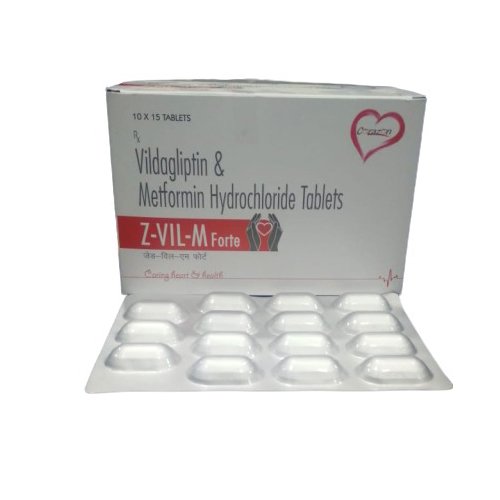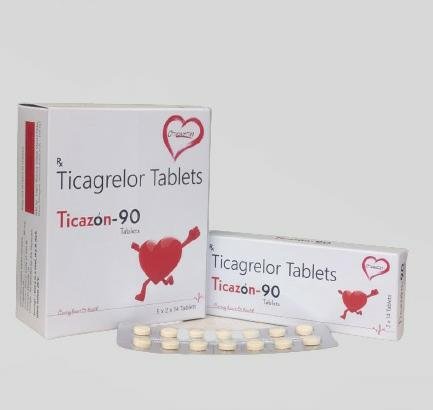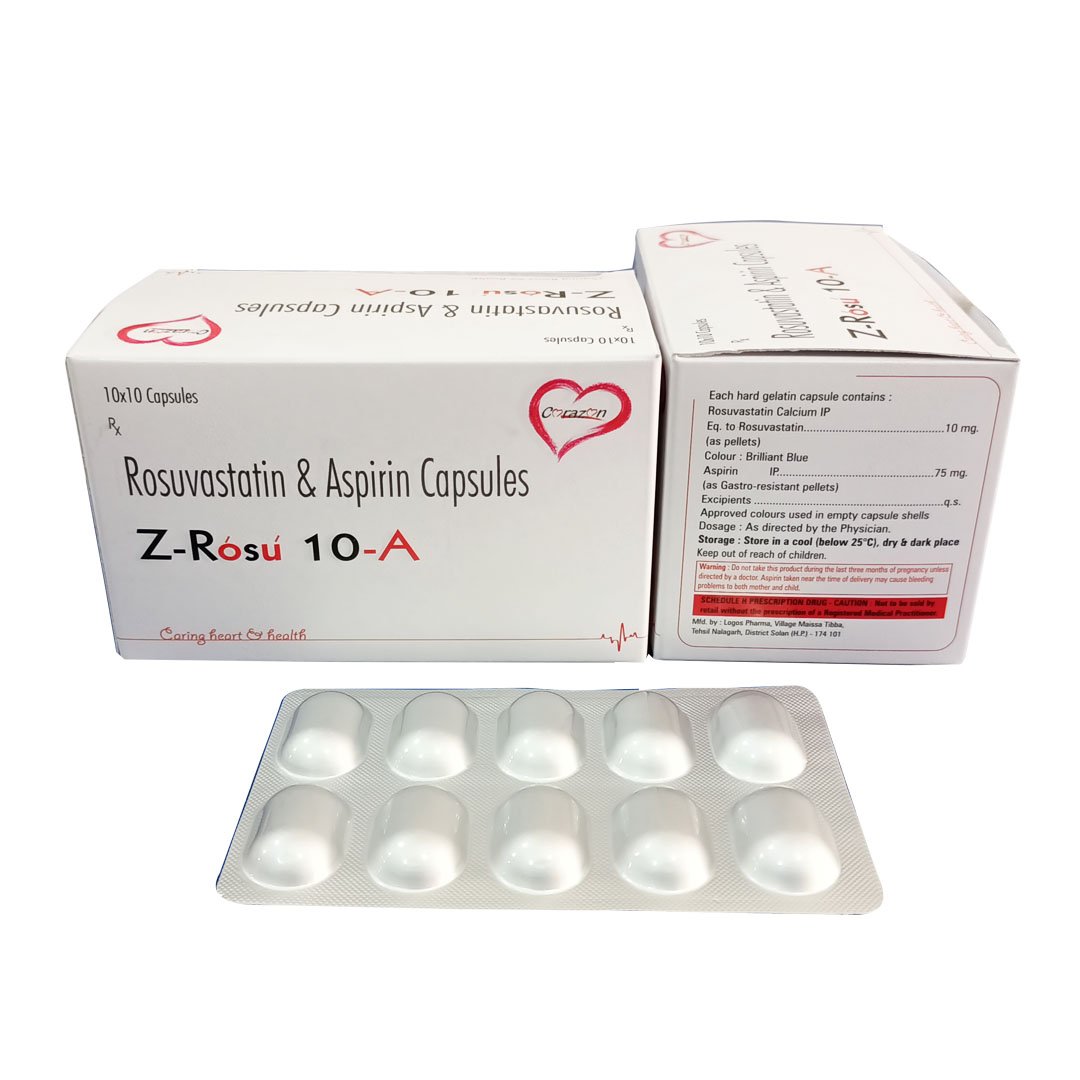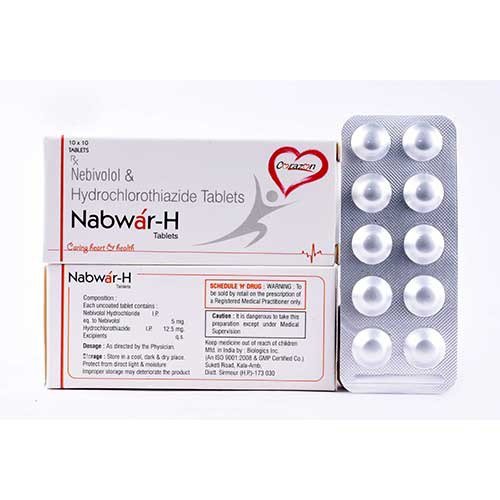Labetalol 100mg
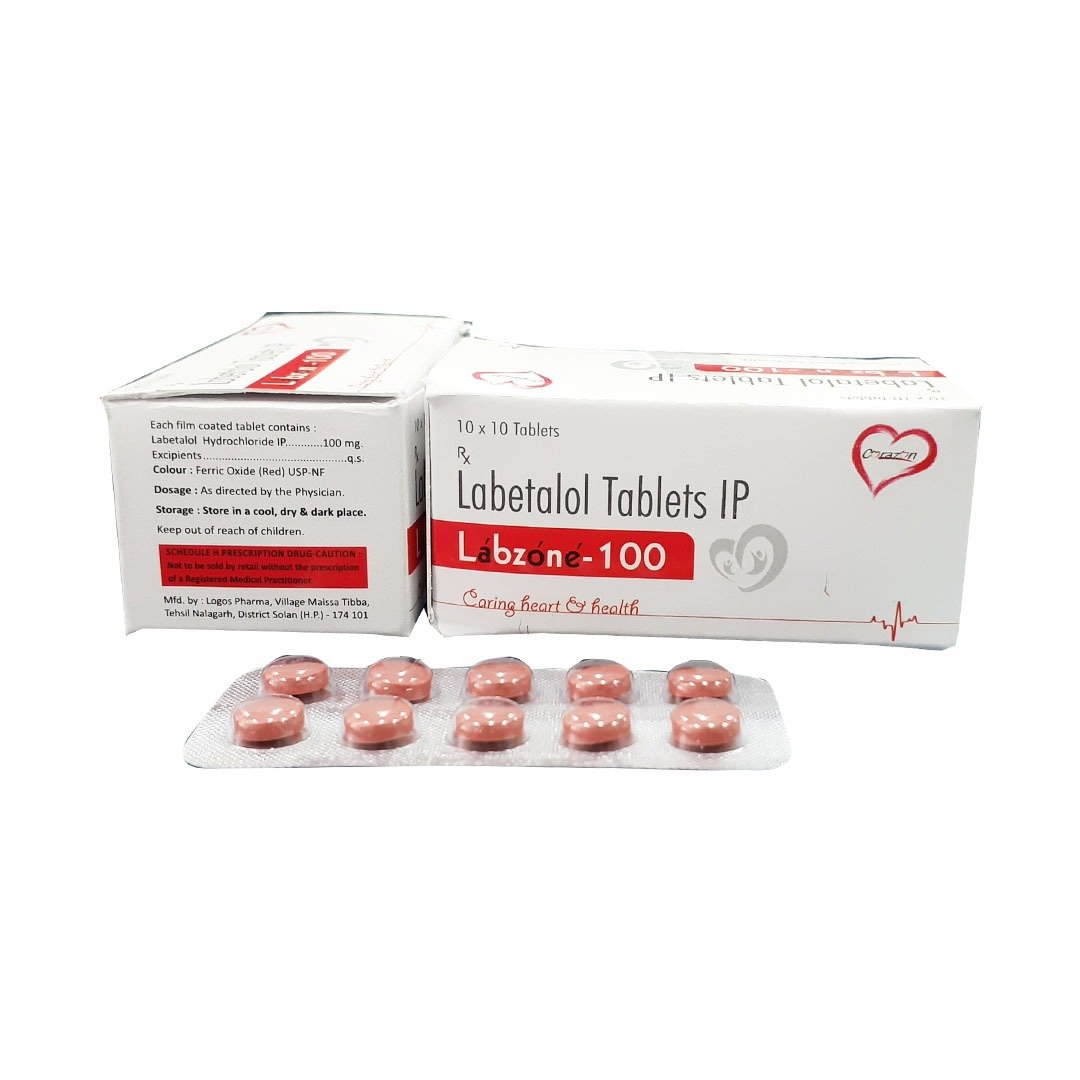
Brand Name : Labzone-100 Tab
Composition : Labetalol 100mg
Packing Type : 10x10
Product Price : Rs. 1490
Labetalol is used with or without other medications to treat hypertension. Lowering high blood pressure helps prevent strokes, heart attacks, and kidney problems.This medication is both an alpha blocker and beta blocker. It works by blocking the action of certain natural chemicals in your body such as epinephrine on the heart and blood vessels. This effect lowers the heart rate, blood pressure, and strain on the heart.
About LABETALOL
LABETALOL belongs to the blood pressure-lowering medications called 'beta-blocker' used to treat hypertension (high blood pressure) and angina (chest pain). Additionally, LABETALOL is used to control high blood pressure in pregnancy and during anaesthesia. High blood pressure is a condition in which the blood exerts elevated pressure on blood vessel's walls, leading to various cardiovascular complications like the risk of heart attack and stroke in the future.
LABETALOL contains 'labetalol' that works by blocking the receptors in the cardiovascular system, this helps decrease the blood pressure in the blood vessels. LABETALOL helps the heart to beat slower with less force. It also relaxes and widens the blood vessels, this makes it easier for the heart to pump blood to all parts of the body. Thereby, helps in lowering the raised blood pressure and reducing the overload of the heart.
You are advised to take LABETALOL for as long as your doctor has prescribed it for you depending on your medical condition. In some cases, you may experience certain common side-effects such as dizziness, drowsiness, nausea, vomiting, swelling, headache and allergy. Most of these side-effects do not require medical attention and will resolve gradually over time. However, you are advised to talk to your doctor if you experience these side-effects persistently.
Please do not stop taking LABETALOL on your own as it may cause sudden increase the blood pressure. Your doctor may prescribe LABETALOL during pregnancy to treat hypertension during pregnancy when rapid blood pressure control is necessary. Consult your doctor before taking LABETALOL if you are breastfeeding. LABETALOL is not recommended for children as the efficacy and safety have not been established. Avoid consuming alcohol as it might interfere with the working of LABETALOL. Inform your doctor about all the medicines you are taking and your health condition to rule out any unpleasant side-effects.
Uses of LABETALOL
Hypertension (high blood pressure), Angina (heart related chest pain)
Medicinal Benefits
The LABETALOL belongs to the anti-hypertensive medicines called beta-blocking agents used to treat hypertension (high blood pressure) and angina (chest pain). LABETALOL is also used to control high blood pressure in pregnancy and during anaesthesia. LABETALOL works by blocking the receptors in the cardiovascular system, this helps decrease the blood pressure in the blood vessels. LABETALOL helps the heartbeat slower with less force and relaxes, widens the blood vessels, this makes it easier for the heart to pump blood to all parts of the body. Thereby, helps in lowering the blood pressure to normal. LABETALOL blunts the increase in blood pressure and heart rate that could occur during exercise. If taken at recommended doses, LABETALOL does not cause harm. LABETALOL may be used alone or in combination to treat hypertension.
Drug Interactions
Drug-Drug Interaction: LABETALOL may have interaction with a painkiller (aspirin, indomethacin, ibuprofen), diuretic (furosemide), anti-hypertensive (amlodipine, verapamil, clonidine), hormone (levothyroxine), cardiac glycoside (digoxin), anti-arrhythmic (amiodarone), anti-depressants (imipramine), anti-diabetic (metformin, glimepiride, acarbose, repaglinide, insulin), anti-migraine (ergotamine, dihydroergotamine), anti-Alzheimer (donepezil, galantamine, rivastigmine) anti-psychotic (chlorpromazine)
Drug-Food Interaction: Avoid alcohol consumption as it may cause unpleasant side-effects.
Drug-Disease Interaction: The people should not take LABETALOL who have congestive heart failure (heart problems), hemodialysis, bradyarrhythmia, diabetes, ischemic heart disease, asthma/COPD, glaucoma, hyperlipidemia, hyperthyroidism, myasthenia gravis (muscle problems), psoriasis, Prinzmetal angina, liver diseases and kidney dysfunction.
Address
SCO 5-6, Zirakpur-Panchkula-Kalka Hwy, near Hotel Sunpark, Wadhawa Nagar, Dhakoli, Zirakpur, Punjab 140603
Contact No.
+91-7087571536
Email
arlakcorazon@gmail.com
